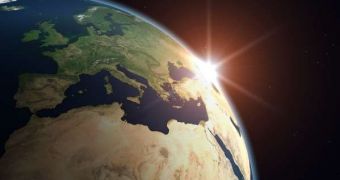Although the space ambitions of the EU members are quite high, granting them the necessary funds still comes as a problem, since many of the EU states decided having more important issues to spend their money on.
There is growing concern related to the fact that many of the EU member states still prove to be quite reluctant to participating in the space projects with the astronomical funding required. Yet, a recent statement of the EU ministers on Friday, September 26th, assured that EU is decided to become one of the big players at the space projects table. They have all concurred on “the need to develop instruments and financial schemes for European space policy,” shared Valerie Pecresse, the Research Minister of the country that currently holds the rotating EU presidency, France.
Although all of the 27 ministers in charge of similar space and research ministries spoke on the importance of “the need to find long-term financing for space infrastructures, particularly in the field of observation,” no specific details were given on the exact funding requirements or sources.
There are two major undergoing space projects for the EU: the Galileo system destined for satellite navigation (a competitor to the US' GPS system), and Copernicus, which is set to make use of satellites in order to monitor the behavior of the environment. Up to now, the common budget has been allocated 1.2 billion Euros (0.95 billion pounds or $1.75 billion) for Copernicus' development stage during 2007-2013, while not having collected any money for its specific future operations. As for Galileo, its development began in April, based on a funding of 3.4 billion Euros (about 2.7 pounds or nearly $5 billion) until 2013, all left over from unused farm funds.
The main problem is that many of the member states have decided to cut back on community spending, which means that the space project topic is almost out of discussion, according to a EU source. Guenther Verheugen, the EU Industry Commissioner, asked the other member states' ministries: “We are not in a position to send people into space or to bring back material which we launch. We have to ask for help from the Russians. The question is, do we want to remain dependent or are we capable of making a collective effort to become independent?”.

 14 DAY TRIAL //
14 DAY TRIAL //